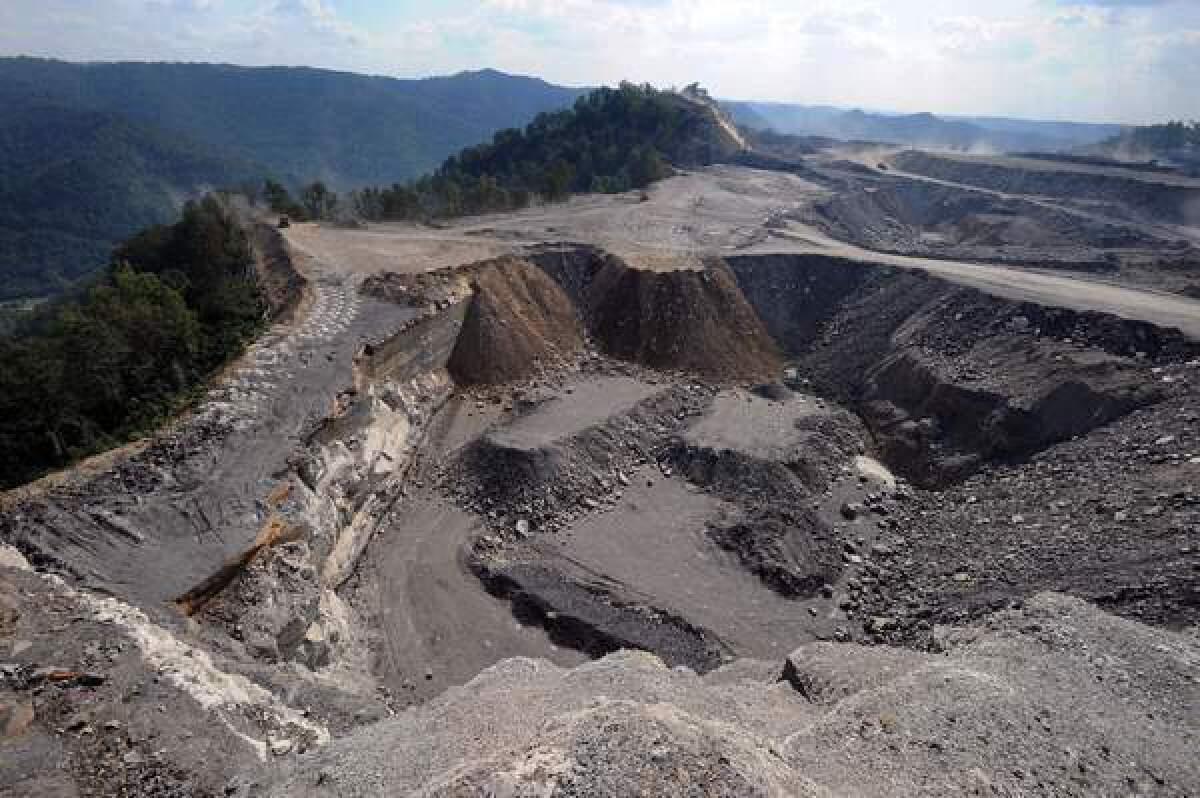Federal court backs EPA regulation of mountaintop removal

WASHINGTON -- A federal appeals court unanimously backed the Environmental Protection Agency’s authority to regulate a controversial form of coal mining called mountaintop removal, overturning a lower court decision that barred the agency from stopping a large coal mine in West Virginia.
The ruling by the D.C. Circuit Court of Appeals is likely to set off considerable political backlash from industry, some utilities and their congressional allies who have long contended that the EPA’s regulatory efforts are killing the coal sector.
In the opinion, Judge Karen Henderson wrote that the Clean Water Act “does indeed clearly and unambiguously give EPA the power to act” to halt the West Virginia Spruce Mine No. 1 project, the biggest mountaintop removal mine ever planned in the state. However, the appeals court did not rule on another key question, whether the EPA’s action was “arbitrary and capricious.” It instructed the district court to consider the second question, meaning that the lawsuit could continue indefinitely.
Mountaintop mining involves slicing away a mountain through controlled explosions in order to expose coal seams. The dispute before the federal appeals court centered on the EPA’s decision to rescind a permit that Arch Coal needed to build Spruce Mine No. 1. Under the Clean Water Act, the Army Corps of Engineers issues permits to mining companies so that they can dispose of millions of tons of rubble left over from blasting mountaintops by depositing it in nearby ravines, in the process burying streams. Already, mountaintop mining has buried thousands of miles of streams in Appalachia.
In 2011, the EPA revoked the Clean Water Act permit the Corps of Engineers had issued to the Spruce Mine, after determining that the proposed dumping of mine waste “would have unacceptable adverse environmental effects and water quality impacts to high quality streams at the mine site.”
The decision prompted the lawsuit by St. Louis-based Arch Coal, the country’s second largest coal company.
The EPA said it was “pleased with the unanimous decision.”
Kim Link, a spokeswoman for Arch, said the company was “disappointed” by the ruling. In its statement, the National Mining Assn. called the decision “devastating” and said that it gave the EPA “unbounded authority to retroactively revoke permits issued by another federal agency.”
Said National Mining Assn. chief executive Hal Quinn, “As a result, a cloud of uncertainty now hangs over any project and companies will no longer have the assurance required to encourage investments, grow our economy and create U.S. jobs.”
Environmentalists have been fighting the 3,000-acre proposed mine since the late 1990s, and they welcomed the ruling. Emma Cheuse, a lawyer for Earthjustice, one of the environmental groups that filed an amicus brief in the case, said that EPA has used its authority under the Clean Water Act sparingly to revoke permits and prevent dumping into water.
The Spruce Mine Case was the first time EPA used its authority in mining, Cheuse said. “It is a precedential decision,” she said. “It says that between the Corps of Engineers and EPA, EPA has the final say. That’s because EPA is the conscience of the Clean Water Act and it has the expertise to understand the science and the effects of mining on the environment and communities.”
Follow Politics Now on Twitter and Facebook
Twitter: @neelaeast
More to Read
Get the L.A. Times Politics newsletter
Deeply reported insights into legislation, politics and policy from Sacramento, Washington and beyond. In your inbox three times per week.
You may occasionally receive promotional content from the Los Angeles Times.











